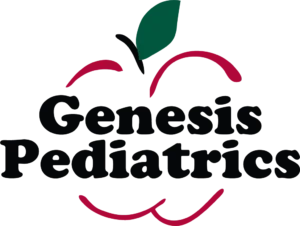We have received a number of phone calls in the last 2 weeks regarding confirmed cases of Pertussis (whooping cough) in the local school districts.
If you have received this letter, your biggest question is likely… “Is my child at risk?”
Answer: Postexposure antibiotic prophylaxis is warranted for individuals with close contact to a person with pertussis. Close contact is defined as face-to-face exposure within three feet of a symptomatic patient. Therefore, the risk of your child acquiring the illness is minimal if the child with pertussis is only within the same school (as opposed to the same classroom).
In an effort to cut down on the number of calls going to our triage nurses, we’d like to share some basic information with you regarding this disease.
What is “pertussis” (whooping cough)? — Whooping cough is an infection that causes a severe cough. It can spread easily from person to person.
Doctors recommend that babies and young children get 5 doses of the pertussis vaccine. They also recommend that children ages 11 to 12 and most adults get 1 dose of the vaccine. Pregnant women should get 1 dose during each pregnancy. It’s especially important that adults and children who are around newborn babies get the vaccine.
Unfortunately, children and adults can still get whooping cough even if they’ve received their vaccinations on time.
What are the symptoms of pertussis? — Early on, whooping cough usually causes sneezing, runny nose, stuffy nose, and a mild cough.
After 1 to 2 weeks, the cold symptoms get better, but the cough gets worse. People have severe coughing attacks. During these attacks, children can gag, choke, or have trouble breathing. People can also vomit from coughing so hard. Infants with this disease may actually stop breathing.
After 2 to 6 weeks, the cough starts to get better. But it can take weeks to months for the cough to go away completely. It is nicknamed “the 100 day cough.”
“Whooping cough” gets its name because many people (not everyone) make a “whoop” sound when they breathe in after a coughing attack.
How is whooping cough treated? — Doctors usually treat whooping cough with antibiotics, most commonly with Azithromycin. The medicine can help the infection get better faster and helps keep it from spreading to others.
People living with the infected person might also need to take antibiotics, even if they aren’t sick. This can help keep them from getting the infection, or may cause a milder form of the disease.
Most babies younger than 4 months need to be treated in the hospital. That’s because the infection is very serious and can be deadly in babies. In the hospital, doctors can watch a baby closely and give him or her oxygen, fluids, and nutrition (if necessary).
What are the ways to prevent the spread of pertussis ? — You can:
●Cover the cough, or wear a mask.
●Handwashing. Handwashing. Handwashing.
●Those with a confirmed case of pertussis should avoid being near babies and young children until they have been on antibiotics for 5 days (including those who work with children).
● Vaccinate. Vaccinate. VACCINATE.
Please call the office if your child has had exposure to pertussis within the same classroom.
